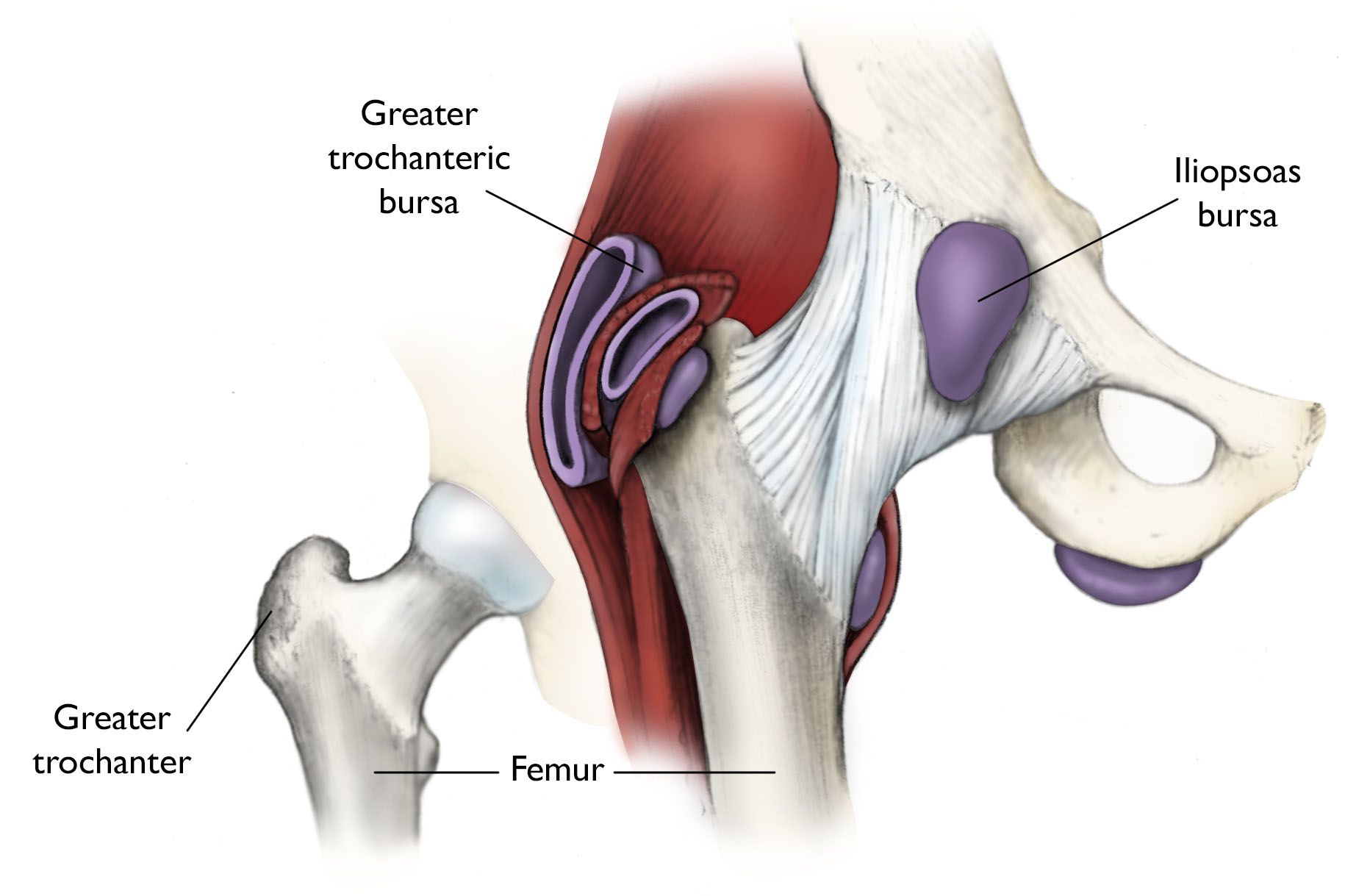So your Doctor said you have Bursitis: What does that mean?

The term osteoarthritis is well known, and often synonymous with joint pain. Bursitis is also a common cause of joint pain, but not as well known.
The human body has several mechanisms in place to assist the efficient, life-long movement and articulation between its bones and tissues. One of these mechanisms is fluid-filled cushions known as bursa, that are strategically positioned throughout several joints in the body, including the shoulder, knee, and hip. Bursa are present to prevent excessive friction from being produced when muscular tendons rub back and forth over bony processes. If soft tissues irritate the bursa, they can become inflamed; this is known as bursitis.
When hip pain is the presenting symptom, there are two bursa surrounding the hip that could possibly be irritated or inflamed. The greater trochanteric bursa located over the bony process known as the greater trochanter of the femur, and iliopsoas bursa, located deeper within the groin area. The greater trochanteric bursa is more commonly affected in terms of symptomatic hip pain. Many patients will present with an onset of acute, sharp pain over the lateral aspect of the hip that they can typically point to with one finger. Different activities can lead to bursitis of the hip, the most common culprit being repetitive actions. Other causes include injury, rheumatoid arthritis, and surgery.
Hip bursitis is common among women and the elderly but could affect anyone. There are several treatment options for hip bursitis depending on the frequency and severity of the patient’s symptoms. Activity modification, and possibly avoidance, is routinely recommended first, along with weight loss. If the less invasive options do not provide sufficient relief your doctor may prescribe anti-inflammatory medications, and steroid injections directly into the affected bursa. Physical Therapy can also provide relief for some patients. Surgery is not a commonly recommended treatment option for bursitis.
While bursitis can be temporary and resolve spontaneously for some patients, it can also become a chronic issue that needs ongoing symptomatic treatment. If you are experiencing hip pain and would like to be evaluated for potential bursitis, contact Dr. James B. Kyle and his team at Louisiana Orthopaedic Specialists 337-235-8007 to schedule an appointment.
Written by Cory E. Sehrt, PA-C and Dr. James B. Kyle, MD on 4/12/2020

